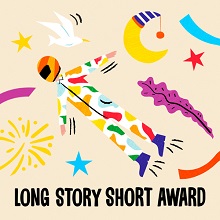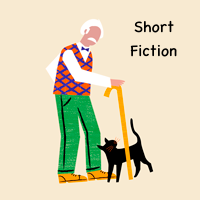When Wally asks me to punch him in the stomach, I try not to hold back. I let it rip. I set my feet like he taught me to, draw back my fist, and deliver a blow to the spot he's pointing at—right above ... [+]
A man responded to her then, I remember it clearly, though it was still dark for me.
He said, “Are you sure this is what you want, ma’am?”
My mother said, without hesitation, “Yes.”
And so, he Fixed me.
* * *
The first time I ever heard someone criticize The Fix, I was with James. James was my best friend since childhood and when we weren’t far into our adolescent years, he stopped talking about girls and started talking about them.
“They create normal out of natural under the guise of making men out of monsters,” he snarled one day, a poet of insolence.
He was so angry. I did not understand why. He was not Fixed. James was actually rather regular.
Whenever he went on one of his diatribes I would nod along, growing ever so aware that James did not know me very well.
“What would he think of me if he knew?” my mind would ask, when I let it wander.
* * *
The first time I was grateful for my Fix was one day when I was with Lisa. She was kissing me in her living room. It was wonderful until she stopped and said: “why do you like me? I’m not a pretty girl.”
I looked at her and was so happy to be able to tell her, truthfully, with all of my confidence: “You’re the prettiest girl I’ve ever seen.”
I’m glad I was able to give her that, but I wish I could have seen her with my own eyes. That was impossible, they were long gone.
* * *
One day, I had another malfunction.
I was sitting in my usual seat, three rows from the front of the classroom when the teacher’s voice began to fade. It went in and out.
“Before we had modern science... and people had to live with these... they were called ‘disabled’...”
I couldn’t pay attention. I clasped my hands to the sides of my head, confused, anxious.
“Are... feeling okay?... nurses’ office?”
Most of that day was a blur. I remember walking into a building I’d never seen before. But it smelled familiar. I met a man, a doctor, that I’d never seen before. But when he opened his mouth, too big, too toothy, I recognized his voice.
Once again my mother sat me down on his operating table: “Fix...”
“Are you sure... what you want...?”
I heard her response clear as day, “Yes.”
And so he began, but this time, before he did anything, I had the privilege of closing my eyes and allowing things to go black on my own terms.
* * *
Most things lose their shine once you’re used to them.
As something lackluster in the first place, The Fix grew to be tedious routine. Like an old car that requires constant maintenance or a stubbornly fruitless garden, I would break over and over again and he would Fix me.
I was the Ship of Theseus. If you replace the boards of a ship, one at a time, over a period of time, when is that ship no longer itself? I didn’t feel much like myself anymore. Just tubes, and wires, and metal, held together by fragile, useless flesh, more machine than man, and utterly, undeniably perfect.
I first realized that I hated them after I had lost count of my Fixings. I began to wish that they would stop Fixing me. I began to wish that they would let my heart stop beating like it clearly wanted to.
* * *
The last time I was Fixed, I did not care anymore. I got off of the operating table and looked at my hands -- new and improved. They did not shake the way they had, hurt the way they used to. They looked human, but the metal under my skin was cold. I knew it would always be cold.
I suppose my hands should have looked gnarled. Aged and worn and rough. But they did not. They looked fresh-out-of-the-box, an upgrade. “So lifelike, you won’t even notice they’re enhanced,” the woman on the television said.
I walked out of the doctor’s office that day and had an idea, the cogs in my brain churning out filtered, mechanical thought.
“I am perfect.”
Sitting down on the sidewalk, I began to cry, hoping the tears might rust some of the parts that were no longer me-- the parts that were better, stronger, more reliable. Because I did not want to be perfect. I wanted to be me.
Since that first day when my mother ordered them to Fix my blindness, I was stripped of my humanity. Is perfection worth the price of individuality? Should my mother’s twisted ideas of “nurture” be able to correct the imperfections of “nature”?
In that moment, I felt every artificial implant and metal modification as if they were burning holes in my body. I sunk into that feeling, breath inhumanly even despite the tears streaking my face. Lying on the sidewalk, I imagined the mechanics that held my body together melting, liquid metal dripping off of my bones and muscles and leaving me pure. Leaving me the way I should be. It would kill me. I knew that. But I did not care.
I’d rather die an imperfection than live an abomination.



